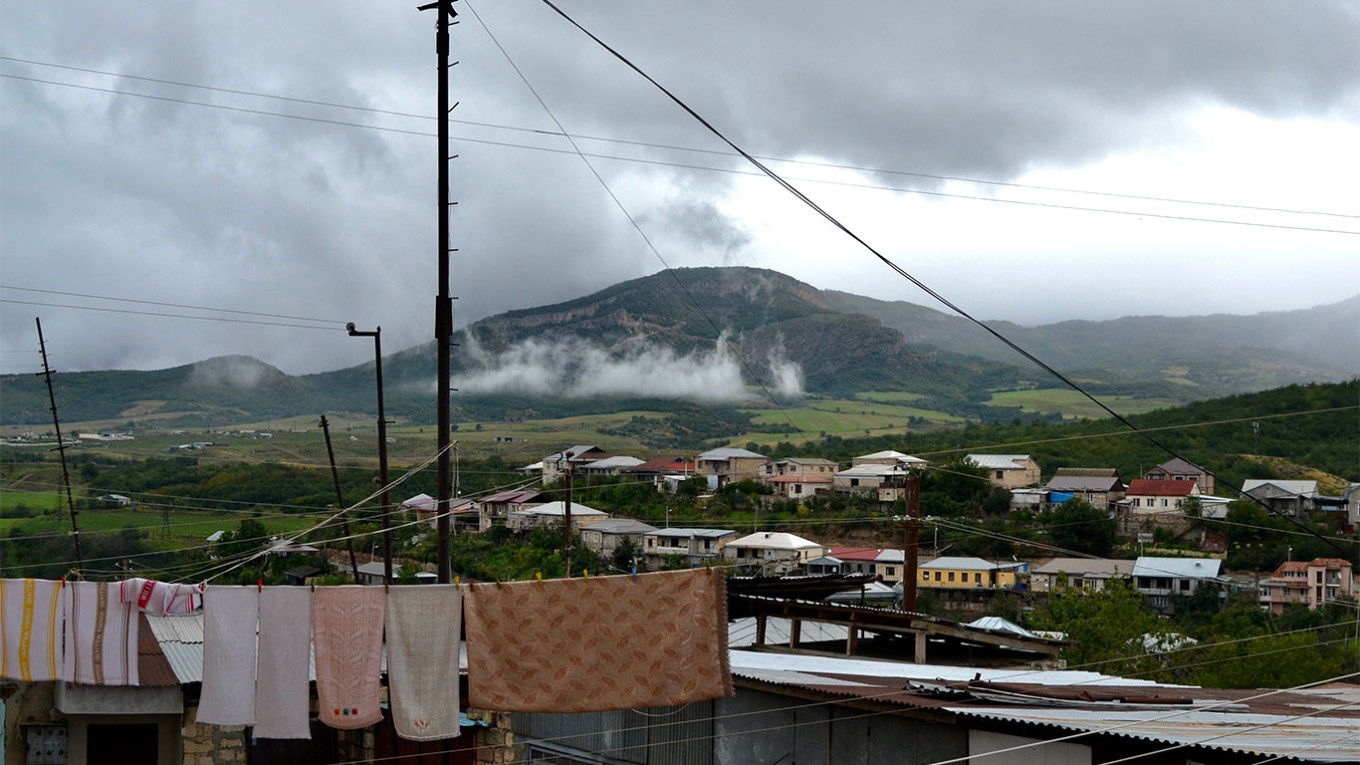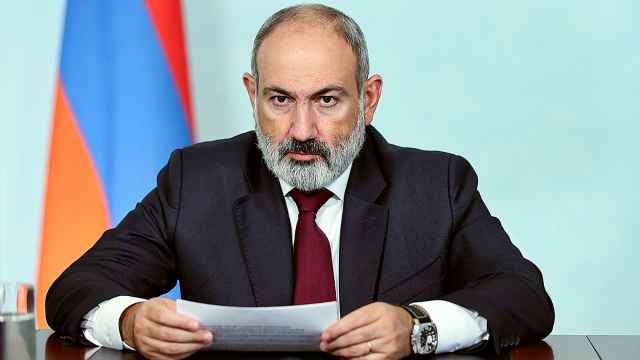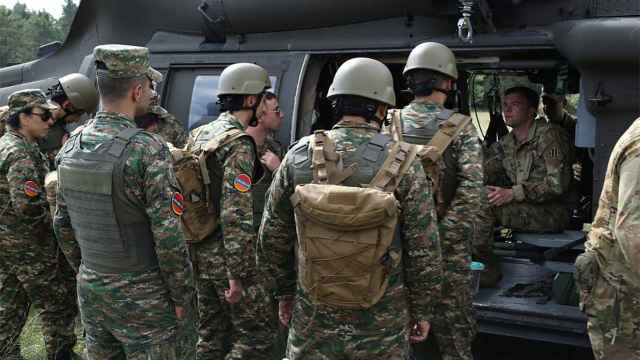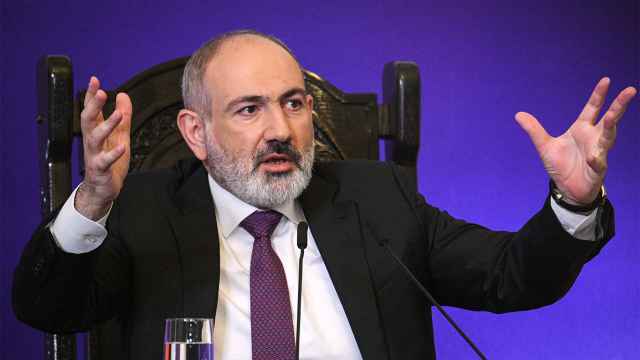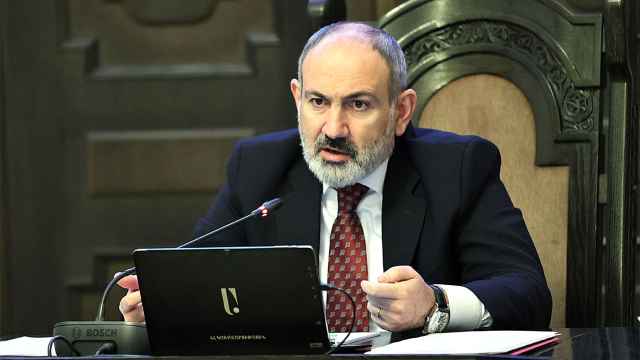Violence has once again returned to Nagorno-Karabakh. On Tuesday, Azerbaijan launched what it called an “anti-terrorism exercise” in the breakaway territory, effectively breaking the resistance separatist authorities had put up against Baku for 30 years with the support of Armenia, their closest ally.
There is a remarkable difference between Yerevan’s response to the most recent outbreak of violence and the Second Nagorno-Karabakh War in 2020, as well as its subsequent border clashes. Back then, Armenia, as a member of the Russia-led Collective Security Treaty Organization (CSTO), appealed for military assistance from the alliance. Now the Armenian authorities have not even made such an attempt.
That said, as in 2020, Russia today would probably refuse to help Armenia during the conflict on based on legal grounds. Moscow recognizes Nagorno-Karabakh as a part of Azerbaijan, rather than Armenian territory. But it would have been worth asking for help. Why did Yerevan not turn to CSTO and what does the decision not to do so say about Russia’s positions in the post-Soviet space?
CSTO was established in 2002 as a collective security organization in the post-Soviet space. From the very beginning, Russia has played a leading role by contributing a disproportionate share of its funding, and providing military resources and infrastructure to other member states in return for their support of Moscow’s policies
Accordingly, the organization only included countries that were willing to cooperate with Moscow. Today, CSTO consists of Armenia, Belarus, Kazakhstan, Kyrgyzstan, Russia, and Tajikistan. Uzbekistan joined the organization in 2006 after an uprising in the city of Andijan the year before, when Uzbek government forces killed hundreds of unarmed protesters, but suspended its membership in 2012 as it pivoted its foreign policy away from Moscow.
The main formal rationale of CSTO was to provide military security through the mechanism of collective defense, which obliges all members to come to each other’s aid when attacked, as stipulated in Article 4 of the ogranization’s Treaty. In this respect, CSTO has some similarities with NATO, as Article 5 of the North Atlantic Treaty requires the same kind of collective defense.
However, after the color revolutions that led to the overthrow of several incumbent post-Soviet regimes in the mid-2000s, CSTO was given a new goal: to support the existing, mostly authoritarian political regimes of its member states. This aim was only reinforced after the Arab Spring, which saw the toppling of dictators and the eruption of civil wars across much of the Arab world.
For illustration, the only reason why the Russian authorities decided to help Kazakhstan’s President Kassym-Jomart Tokayev weather mass unrest in 2022 was their desire to keep him in power and thus preserve the stability of his regime. It was the first time CSTO activated its collective defense mechanism, launching a mission on the pretext of foreign intervention in Kazakhstan, even though Kazakh authorities have never provided evidence to back up these claims.
But when Armenia requested help in 2020, this assistance was refused. TheCSTO decided not to help Kyrgyz President Kurmanbek Bakiyev deal with the ethnic clashes that broke out in the city of Osh in 2010, despite his official request.
Armenia’s disillusionment with the CSTO is rooted in the organization’s refusal to help when war with Azerbaijan broke out again in 2022. However, unlike the Second Nagorno-Karabakh War in 2020, Azerbaijan directly attacked Armenia’s sovereign territory during border clashes last year. Yerevan must have expected that Russia would have no choice but to call on other members of the alliance under Article 4.
But Russia did not come to Armenia’s aid. Having launched the full-scale invasion of Ukraine in February 2022, Russia was in no position to help its ally when it was directly attacked, as it was itself attacking a sovereign independent state for bogus reasons.
Armenia learned this lesson and began to reorient its foreign policy toward a new powerful ally — the United States. In September 2022, Nancy Pelosi, the Speaker of the U.S. House of Representatives, visited Armenia, thus becoming the highest-ranking American official to visit the country since its independence. And in January, Armenia refused to host CSTO military training. This past week, it held a joint training exercise with American troops.
At the same time, Armenia’s Prime Minister Nikol Pashinyan confirmed that Armenia will come under the jurisdiction of the International Criminal Court (ICC). In March, the ICC issued an arrest warrant for Russian President Vladimir Putin over the unlawful deportation of Ukrainian children to Russia.
By now, it’s crystal clear that Russia has lost its credibility as a regional peacekeeper in Yerevan’s eyes.
Throughout the Putin era, Russia has taken an imperialist view of its neighbors, and the war against Ukraine has caused irrevocable damage to Moscow’s reputation and influence in the post-Soviet space. This has dangerous consequences. We would not be witnessing civilian deaths and a humanitarian crisis in Nagorno-Karabakh as a result of Azerbaijan’s military operation today had Russia genuinely cared about regional stability. If Moscow fulfilled its duties as a responsible peacekeeper, Baku would not have continued to stoke conflict with Yerevan.
Russia's irresponsibility has created potential dangers for other CSO member states. Just a year ago, there was a series of clashes on the border between Kyrgyzstan and Tajikistan, where Russia failed to carry out monitoring missions. Over 30 years ago, the disintegration of the Soviet Union set the stage for future conflicts — both frozen and new — to erupt across the region. And Russia, now distracted by disaster and conflict of its own making, won’t stop them.
A Message from The Moscow Times:
Dear readers,
We are facing unprecedented challenges. Russia's Prosecutor General's Office has designated The Moscow Times as an "undesirable" organization, criminalizing our work and putting our staff at risk of prosecution. This follows our earlier unjust labeling as a "foreign agent."
These actions are direct attempts to silence independent journalism in Russia. The authorities claim our work "discredits the decisions of the Russian leadership." We see things differently: we strive to provide accurate, unbiased reporting on Russia.
We, the journalists of The Moscow Times, refuse to be silenced. But to continue our work, we need your help.
Your support, no matter how small, makes a world of difference. If you can, please support us monthly starting from just $2. It's quick to set up, and every contribution makes a significant impact.
By supporting The Moscow Times, you're defending open, independent journalism in the face of repression. Thank you for standing with us.
Remind me later.


